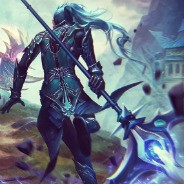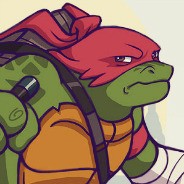1. Read the text. History of medicine
Medicine is among the most ancient of human occupations. It began as an art and gradually developed into a science over the centuries. There are 3 main stages in medicine development: Medicine of Ancient Civilizations, Medicine of Middle Ages and Modern Medicine. Early man, like the animals, was subject to illness and death. At that
time medical actions were mostly a part of ceremonial rituals. The medicine man practiced magic to help people who were ill or had a wound. New civilizations, which developed from early tribes, began to study the human body, its anatomic composition. Magic still played an important part in treating but new practical methods were also developing. The early Indians, e. g., set fractures and practiced aromatherapy. The Chinese were pioneers of immunization and acupuncture. The contribution of the Greeks in medicine was enormous. An early leader in Greek medicine was Aesculapius. His daughters, Hygeia and Panacea gave rise to dynasties of healers (curative medicine) and hygienists (preventive medicine). The division in curative and preventive medicine is true today. The ethic principles of a physician were summarized by another Greek, Hippocrates. They are known as Hippocrates Oath. The next stage of Medicine's development was the Middle Ages. A very important achievement of that time was the hospital. The first ones appeared in the 15-th century in Oriental countries and later in Europe. Another advance of the Middle Ages was the foundation of universities during 13—14-th centuries. Among other disciplines students could study medicine. During 18-th century new discoveries were made in chemistry, anatomy, biology, others sciences. The advances of that time were invention of the stethoscope (by Rene Laennec), vaccination for smallpox, discovery of anesthetics and development of immunology and scientific surgery. The next century is rise of bacteriology. Important discoveries were
made by Louis Pasteur and Robert Koch. The development of scientific bacteriology made possible advances in surgery: using antiseptics and control of wound infection.
Medicine in the 20-th century made enormous contribution in the basic medical sciences. These are discovery of blood groups and vitamins, invention of insulin and penicillin, practice of plastic surgery and transplantation.
New words
medicine — медицина
ancient — древний
human — человеческий
occupation — занятие
art — искусство
to develop — развивать
science — наука
century — век
civilization — цивилизация
Middle аges — Средние века
modern — современный
animal — животное
subject — предмет
illness — заболевание
death — смерть
contribution — вклад
discovery — открытие
blood — кровь
Артикли
Перед каждым нарицательным существительным должен стоять артикль. В английском языке существуют два вида артиклей: неопределенный (indefinite) «А», «AN» и определенный (definite) « THE». Если слово употребляется в первый раз, используется неопределенный артикль» «А», «АN». Во второй и последующие разы употребляется определенный артикль «THE». Артикль не употребляется, если перед существительным стоит притяжательное или указательное местоимение, другое существительное в притяжательном падеже, количественное числительное или отрицание «no».
2. Вставьте артикль, где необходимо.
1. This is … book. It s my … book.
2. Is this your … pencil? No, it is not my pencil, it is my sister`s
pencil.
3. I have ... sister. My ... sister is … engineer. My sister's ... husband
is ... doctor.
4. I have no … handbag.
5. Is this ... watch?
— No, it isn't ... watch, it's ... pen.
6. This ... pen is good, and that ... pen is bad.
7. I can see pencil on your ... table, but I can see pencil on, but I can
see no ... paper.
8. Give me ... chair, please.
9. They have ... dog and two ... cats.
10. I have ... spoon in my ... plate, but I have no ... soup in it.
3. Answer the questions.
1. When the history of medicine began?
2. How did it begin?
3. How many the main stages are there in the history of medicine?
4. What practices medicine-men?
5. What role did magic play at those times?
6. Who began to study medicine?
7. Who were the pioneers of immunization and acupuncture?
8. Who was the early leader in Greek medicine?
9. When appeared the first hospitals?
10. What Louis Pasteur and Robert Koch discovered?
116
346
Ответы на вопрос:
1.He is healthy
2.I am lucky
3.My favourite sport is football
4.He is not sick
5. They are not good at sport
6.Is the man good at sport?
7.Are you active?
Реши свою проблему, спроси otvet5GPT
-
Быстро
Мгновенный ответ на твой вопрос -
Точно
Бот обладает знаниями во всех сферах -
Бесплатно
Задай вопрос и получи ответ бесплатно

Популярно: Английский язык
-
Составьте топик на тему: “ What I ate yesterday” (В данном топике вы...
 Karina1111111111510.02.2022 01:12
Karina1111111111510.02.2022 01:12 -
40 баллов Английский ...
 liliakolokol28.12.2020 09:52
liliakolokol28.12.2020 09:52 -
Fill in the sentences with some / any / much / many / a lot / few / little...
 liudmilka1909198206.03.2022 18:47
liudmilka1909198206.03.2022 18:47 -
Choose the best answer he was glad he trains as there was a through train...
 play123928.05.2020 04:01
play123928.05.2020 04:01 -
Match the sentences with the pictures and complete them with the verb...
 yasasmail15.06.2023 01:48
yasasmail15.06.2023 01:48 -
Российская Электронная Школа Сапоставить....
 xandias13.10.2022 22:56
xandias13.10.2022 22:56 -
с двумя заданиямиБуду очень благодарна...
 Masha1512200610.01.2023 21:07
Masha1512200610.01.2023 21:07 -
Перевести предложения. - на завтрак я нечего не кушаю. если у меня получается...
 agroDan21.10.2021 01:16
agroDan21.10.2021 01:16 -
На - галина,анатолий, зина,николай...
 Zelais26.08.2020 08:56
Zelais26.08.2020 08:56 -
Acup of coffee for breakfast on sunday morning. to the bank after work...
 kiraalexeyeva14.07.2022 10:31
kiraalexeyeva14.07.2022 10:31

Есть вопросы?
-
Как otvet5GPT работает?
otvet5GPT использует большую языковую модель вместе с базой данных GPT для обеспечения высококачественных образовательных результатов. otvet5GPT действует как доступный академический ресурс вне класса. -
Сколько это стоит?
Проект находиться на стадии тестирования и все услуги бесплатны. -
Могу ли я использовать otvet5GPT в школе?
Конечно! Нейросеть может помочь вам делать конспекты лекций, придумывать идеи в классе и многое другое! -
В чем отличия от ChatGPT?
otvet5GPT черпает академические источники из собственной базы данных и предназначен специально для студентов. otvet5GPT также адаптируется к вашему стилю письма, предоставляя ряд образовательных инструментов, предназначенных для улучшения обучения.
